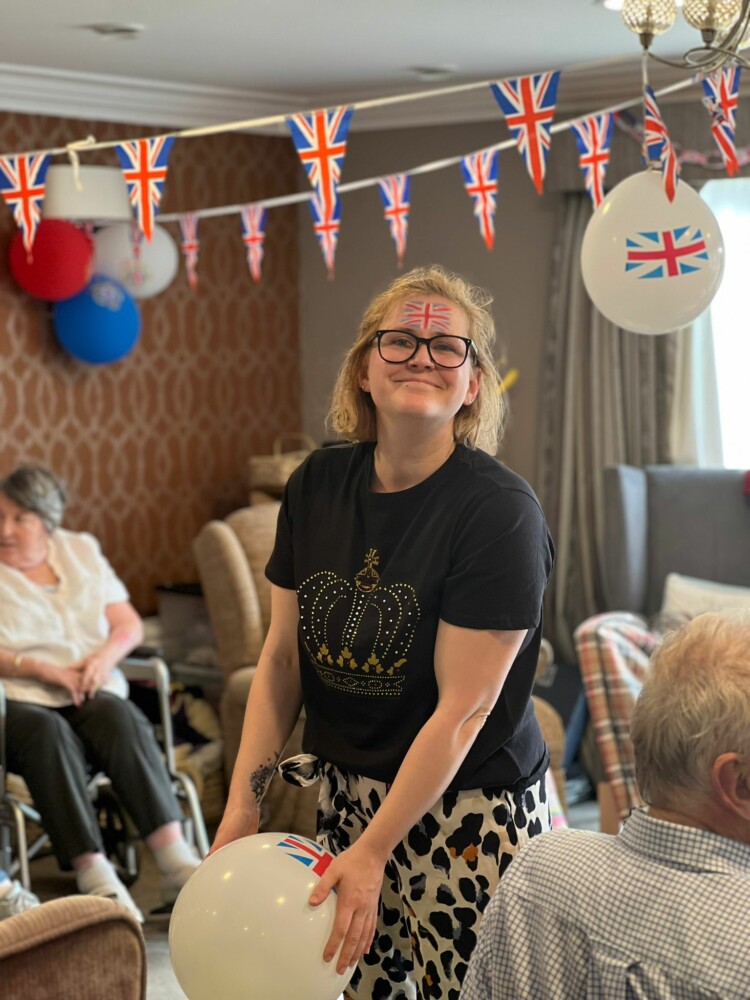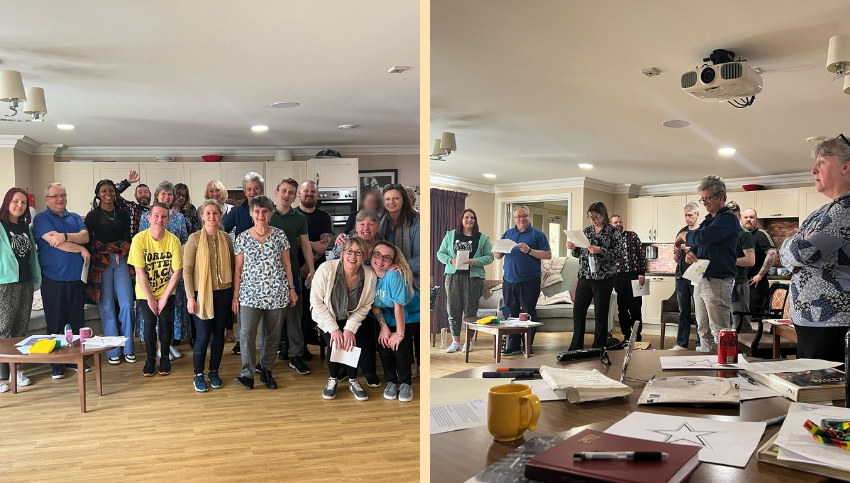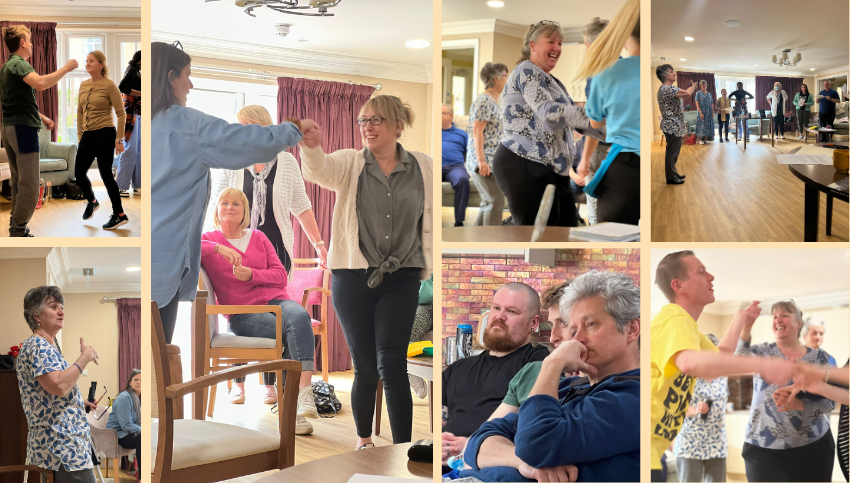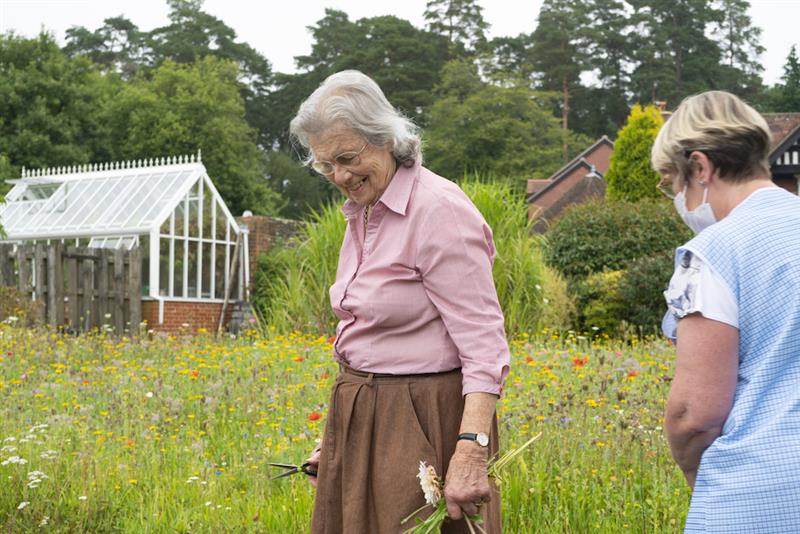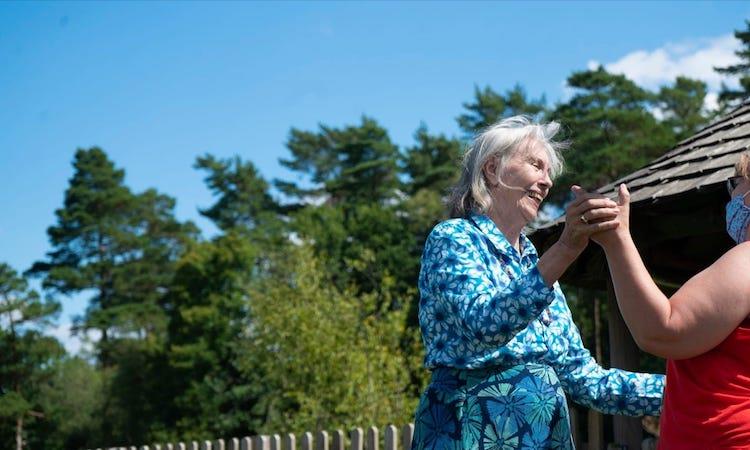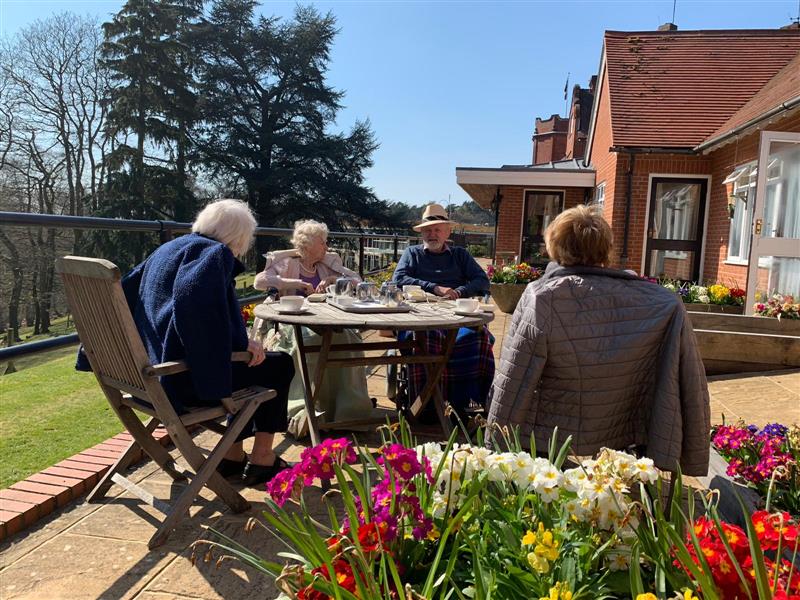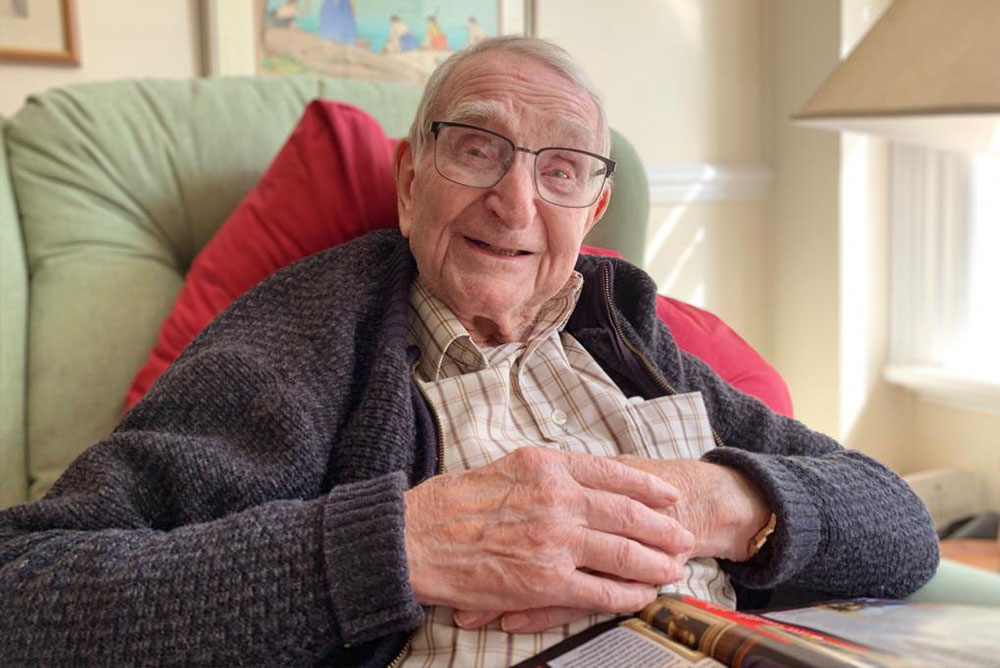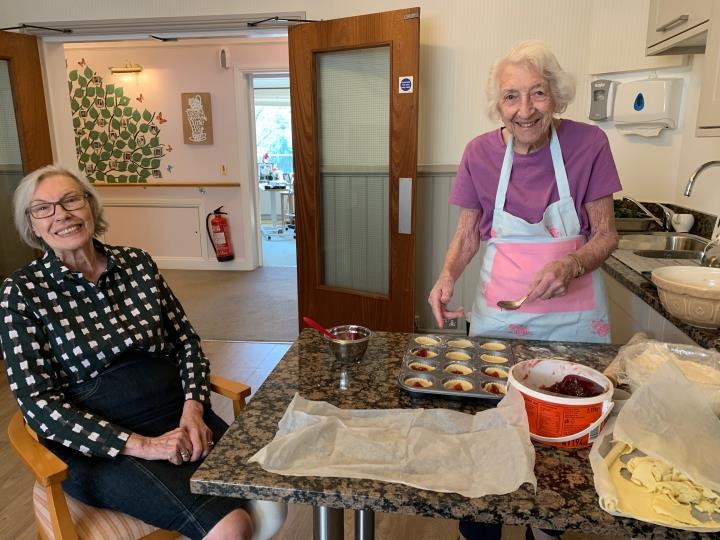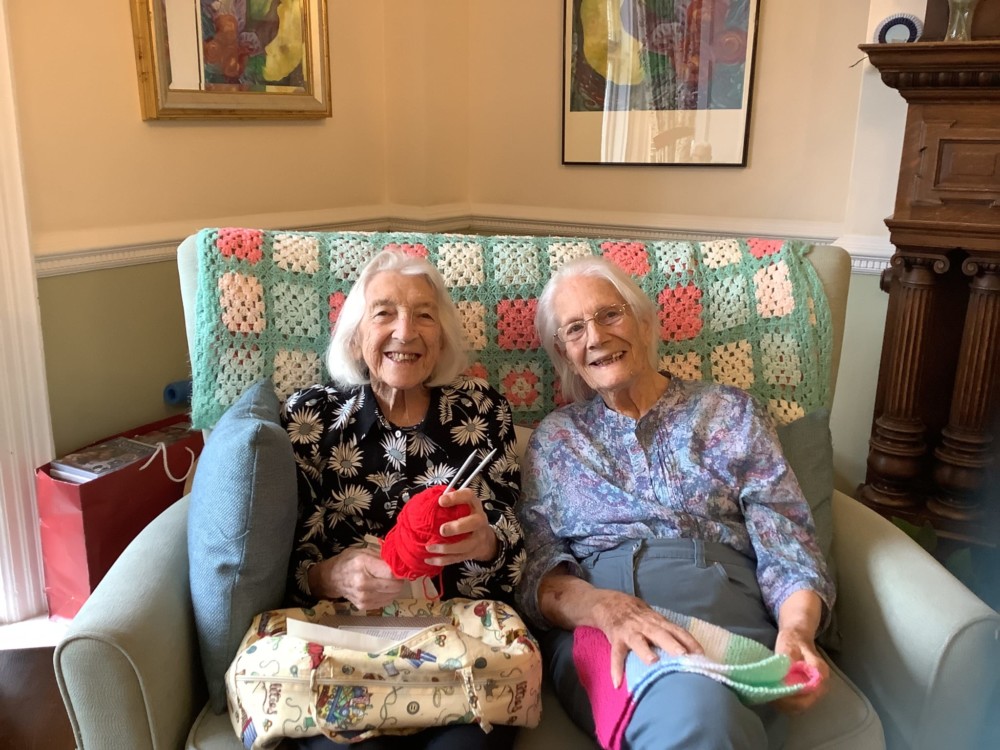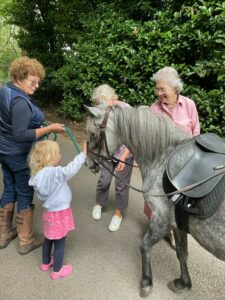Here at the Huntington and Langham Estate, we offer holistic care to all our residents. One very visible face of this care is our Homemakers.
Caring, patient, creative and kind, our Homemakers create strong relationships with our residents and contribute to the happy, friendly family environment we’re so proud of.
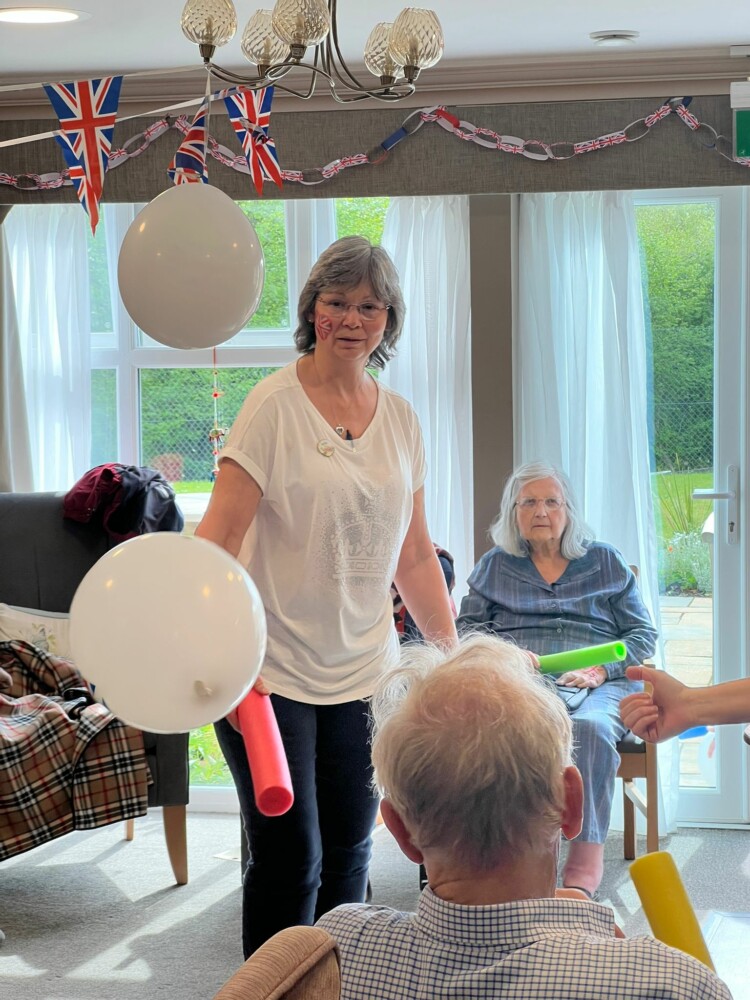
Our Homemakers are key to this environment, ensuring everyone who lives with us has the highest quality of care, retains their dignity and individuality and has the opportunity to participate as much as they want in the life of the home. One way this is played out is through our activities.
Now, many care homes offer extensive structured programming for residents. Every so often, everyone gets shepherded into a hall, whether they want to be or not, and there’s a musical guest or some other attraction.
At Langham Court, our Homemakers don’t rely on structured programming for large groups. We don’t want individual residents to be lost in the crowd – bored or overwhelmed with something they don’t want to do or forced to do something that their sensory loss, complex need or dementia renders meaningless or upsetting.
Instead, our Homemakers focus on creating many opportunities every day for residents to do, see and talk about, and residents are free to join. These activities can still be group activities, of course, but are more likely to be spontaneous, informal and one-to-one or smaller group activities. As our Homemakers know our residents so well, they can also design activities for each person, featuring elements of that person’s experience, skills, desires, interests or hobbies.

Throughout the week, Homemakers create and deliver individual and group activities to meet social, emotional, cultural, intellectual, vocational, physical, and spiritual needs. They also cultivate links with the community – bringing in outside individuals and organisations for entertainment and fun, as well as staging rooms and creating inviting setups for people to respond to.
All our residents are “free to be me” and receive personalised care focusing on them as individuals. We’re all about meaningful connections, unique stories and personal choice. Residents are in the driver’s seat, and our Homemakers carefully and skilfully create journeys for them to go on if they so desire.
Just last week, we had a visit from Cycling Without Age organised by one of our Homemakers. This fantastic volunteer-led charity brings Trishaw bikes to nursing and care homes, enabling residents to feel the wind in their hair as they are cycled around in comfort and style.
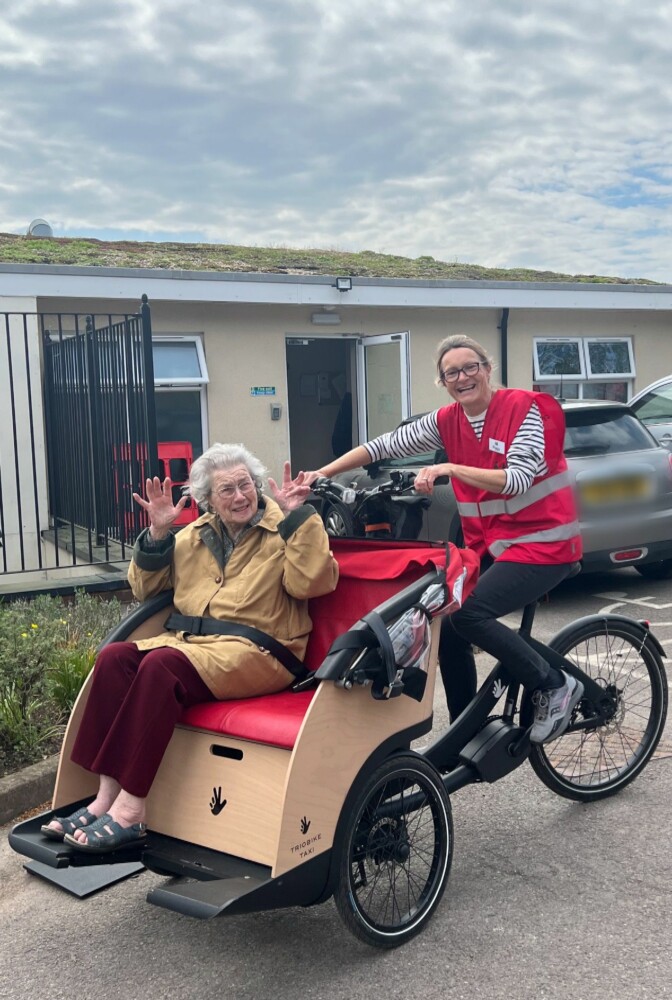
“The amazing work Cycling Without Age do is such a perfect fit for the Estate. The installation of the paths around our grounds were designed to enable people using wheelchairs to explore further afield. The fact the paths can be accessed on the Cycling Without Age e-bike provides people with even more freedom than we had imagined. They can go faster and feel the wind in their hair, and all without the stigma of a wheelchair.” – Charlie – MD
At Langham Court, every team member has our residents’ well-being central to their role. Whether you’re a nurse, work in maintenance or laundry, we make sure there are many opportunities for you to engage with our residents so they have stimulation, company and support. That’s why we have one member of every team, plus one representative family member, at our monthly Home Action Team meeting. During these meetings, we look at various elements of our care which could be even better and action them that month.
In April, we decided to think about people’s life stories, how we can share memories together, and the emotional impact this can have on everyone’s wellbeing; residents and staff alike.
Some of the ideas included creating themed boxes to stimulate conversation and reminiscence as well is sharing family photos and holiday snaps/postcards, which team members can have available in the pockets of their aprons. It may sound simple, but getting to know the people you look after has so many benefits. By knowing the name of the company they worked for, or where they spent their honeymoon, you can create a connection that helps them feel they are not alone and also form the trust needed for them to feel safe in your care.
Here at Langham Court, we’re a community: a family where we all know and care for each other. Multiple daily spontaneous interactions with each resident mean that everyone feels like they matter 24/7 and is part of everyday life – even if they’re not participating in formal activities. We know we offer superb resident-centred care, but we never rest on our laurels. Our Homemakers know they make a positive difference in other people’s lives daily and are always learning, growing and honing their skills.
If you’d like to learn more about being a Homemaker, please visit our website. If you’d like to find out more about our care home for a loved one who is living with Dementia, please call 01428 604 600 or complete this form.
At the Huntington & Langham Estate, we provide luxury care across our two specialist care homes. Family-owned and run, we offer dignified, compassionate and personalised care to our residents, giving them the nurturing support they need to continue living full, independent and meaningful lives. We are Butterfly and Dragonfly accredited.
To arrange a visit to the Estate and tour our homes and grounds, please call 01428 604 600 or complete this form.

